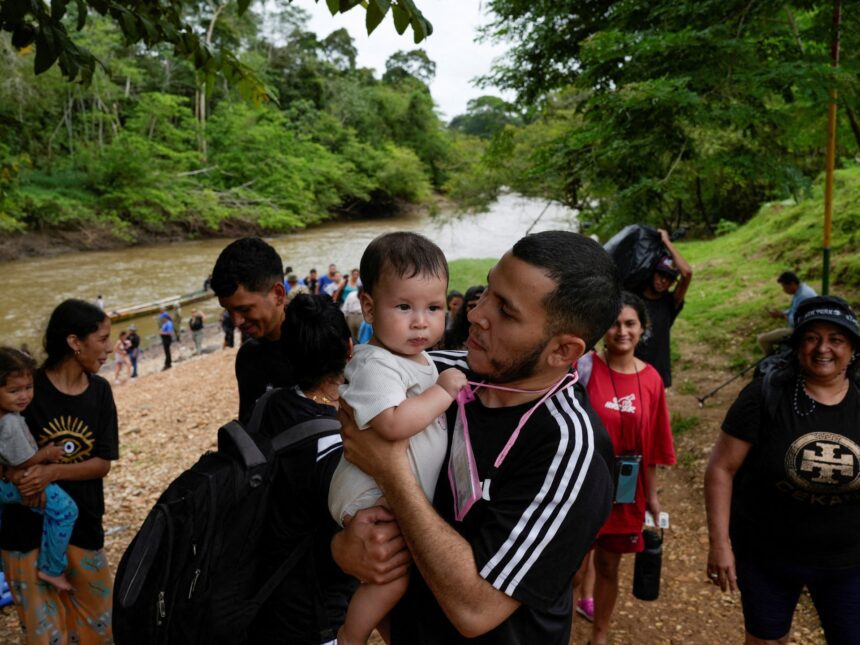The number of migrants and asylum seekers making the dangerous journey through the Darien Gap, the dense jungle connecting South and North America, has dropped significantly in the past year. Panama’s President Jose Raul Mulino announced a 41 percent decrease in the flow of migrants crossing the treacherous terrain, citing it as a success in the country’s efforts to curb irregular migration.
Panama had faced pressure to address the issue of irregular migration as numbers reached record highs in recent years. The United States also experienced a surge in encounters with migrants and asylum seekers at its southern border, leading to political backlash and discussions on immigration policies.
In 2024, both Panama and the US saw a decline in the number of people risking their lives to cross borders illegally. Panama reported a decrease in migrants crossing the Darien Gap, while the US documented a decrease in irregular encounters at its southern border. President-elect Donald Trump, who won the 2024 presidential race, vowed to implement mass deportation measures upon taking office.
Efforts to curb irregular migration have been met with mixed reactions. While some argue that stricter policies are necessary to address the issue, critics warn that these measures could infringe on international and US humanitarian laws by limiting asylum access for those fleeing persecution.
In an attempt to deter irregular migration, the US has urged its allies in South and Central America to limit the flow of migrants toward its borders. Agreements have been made to enhance border security and facilitate deportation flights for those attempting to cross illegally.
Despite these efforts, the underlying reasons that drive migrants and asylum seekers to embark on perilous journeys remain largely unaddressed. In the case of Venezuela, the majority of migrants documented in the Darien Gap are fleeing government abuses and economic instability, with millions of people forced to leave the country in search of basic necessities.
As the issue of irregular migration continues to pose challenges for governments and humanitarian organizations, a comprehensive approach that addresses root causes and respects the rights of those seeking refuge is crucial in finding long-term solutions.










